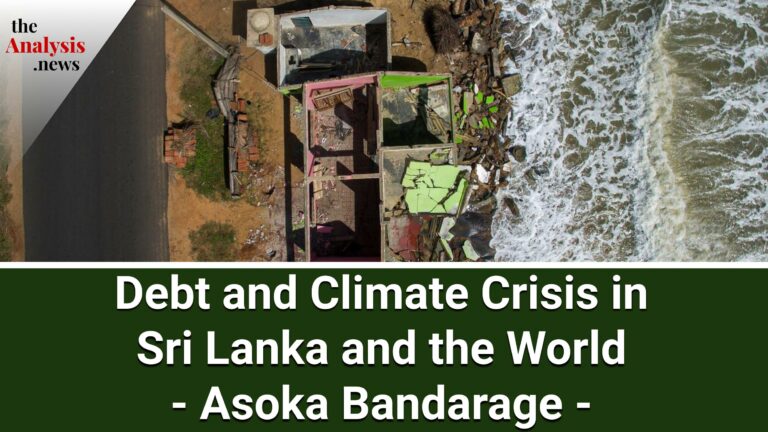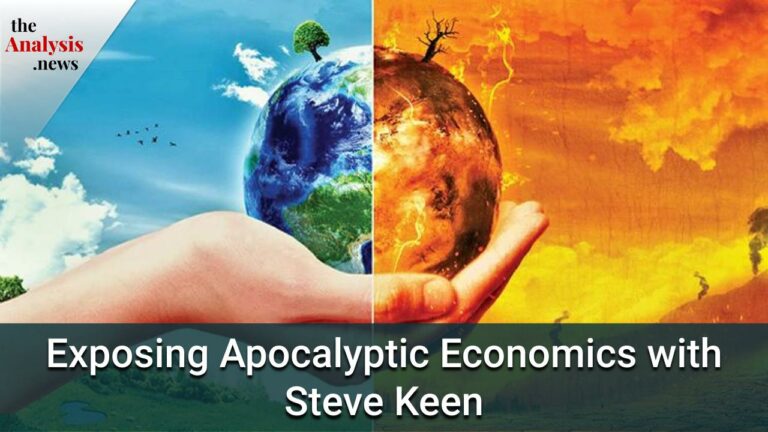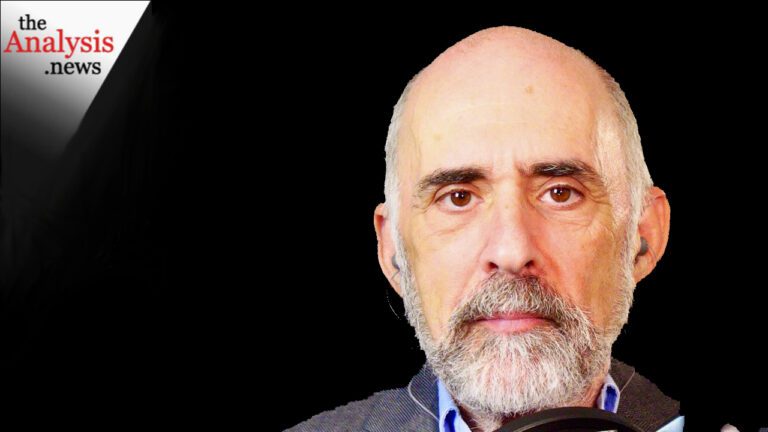The US Supreme Court has made an ad, and it’s surprisingly honest and informative. This video was produced by Juice Media. This was originally published on August 2, 2022.
Never miss another story
Subscribe to theAnalysis.news – Newsletter

The US Supreme Court has made an ad, and it’s surprisingly honest and informative. This video was produced by Juice Media. This was originally published on August 2, 2022.
Subscribe to theAnalysis.news – Newsletter

Dr. Asoka Bandarage is an adjunct professor at the California Institute for Integral Studies and the author of a new book, Crisis in Sri Lanka and the World. Sri Lanka has had a minuscule carbon footprint, and yet the country is particularly vulnerable to the effects of climate change, coastal erosion, and flooding. She discusses the convergence of existential climate and debt crises in Sri Lanka, the latter resulting from IMF debt restructuring and the lack of a globally coordinated multilateral sovereign debt mechanism that places traditional and private lenders on an equal footing.

Steve Keen has been exposing the ways mainstream neoclassical economists—including winners of the so-called Nobel Prize in Economics— have been arriving at their absurdly optimistic numbers regarding climate change, and they’re terrifying. In this interview with Colin Bruce Anthes, Keen goes through prevalent examples in detail and argues that these numbers and the methods behind them must simply be thrown in the garbage.

President Biden appears to have abandoned his pledge to withdraw all support for the Saudi war in Yemen. Annelle Sheline and Trita Parsi join Paul Jay on theAnalysis.news.

The panel discusses how the oligarchs on all sides of the confrontation use nationalism to push their agendas. Does Eastern Europe consider Russia a threat? Boyan Stanislavski and Maria Cernat join Paul Jay for a collaboration on theAnalysis.news and the Barricade.

Paul is interviewed by Andrew Van Wagner where they continue their discussion about nuclear weapons, the media, and climate crisis.

This is an episode of Reality Asserts Itself, produced on March 20, 2016. Paul Jay speaks to Roger Waters and Sut Jhally about the new film “The Occupation of the American Mind: Israel’s Public Relations War in the United States.”
If I may be permitted a further comment:
As there is nothing prescribed in the Constitution about who shall be the determiner of the Constitution’s meaning and John Marshall seized the opportunity to make himself that determiner in Marbury, and it stuck by default. Why did congress let that power devolve on SCOTUS? The final determinant of everything is M O N E Y, and who controls that? Why congress and especially, the House. The ruling class, fearful of democracy, definitely did not want the politicians closest to the people deciding what the Constitution meant, and the Representatives did not want it themselves. They seem much to have preferred a collection of lifetime appointees making such far reaching decisions than, themselves, to be held accountable. The truth is that congress could ignore the Supreme Court’s opinions on the Constitution, and there is nothing the Supreme Court could do! If the high court continued to displease congress, it could cut their pay.
SCOTUS has done the important dirty work of undermining democracy. The founders feared democracy, except for Thomas Paine. The Constitution left undetermined who would decide what it meant, probably to avoid a controversy at ratification. John Marshall seized an opportunity in Marbury v. Madison (1803) to declare the Court powerless to issue a mandamus, because the Constitution denied it that power, he pronounced. By finding the Court powerless in that regard, he assumed a far greater power: the power to decide what the Constitution permits and denies.
Thus, in 1857, Dred Scott v. Sandford, the Court decided that Mr Scott was not a citizen because he was Black, according to the Constitution.
In 1886, a Court Reporter, J.C. Bancroft Davis, was permitted by the Court to decide whether to report that the equal protection of the laws (the 14th amendment) applied to corporations. The subject of corporate rights was a hot one that no Justice wanted to address by name, so Chief Justice Waite let the Reporter reveal the Court’s view.
In 2000, the Supreme Court took upon itself the management of the presidential election and effectively appointed George W. Bush.
In 2010, the Supreme Court found that contribution vast sums of money to finance a political campaign was the same as free speech.
In their black robes, they have done their black deeds.